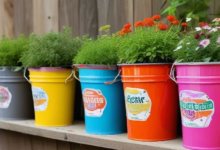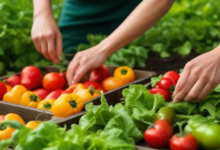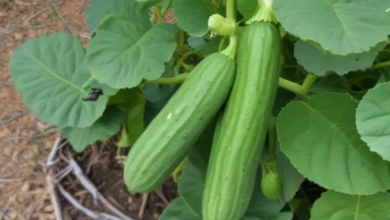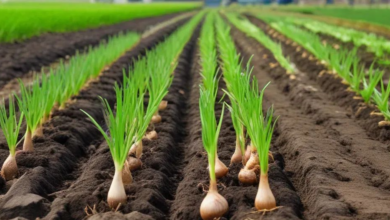Carrot Companion Plants and What They Can Do for You
Elevate your carrot patch with strategic companion planting.
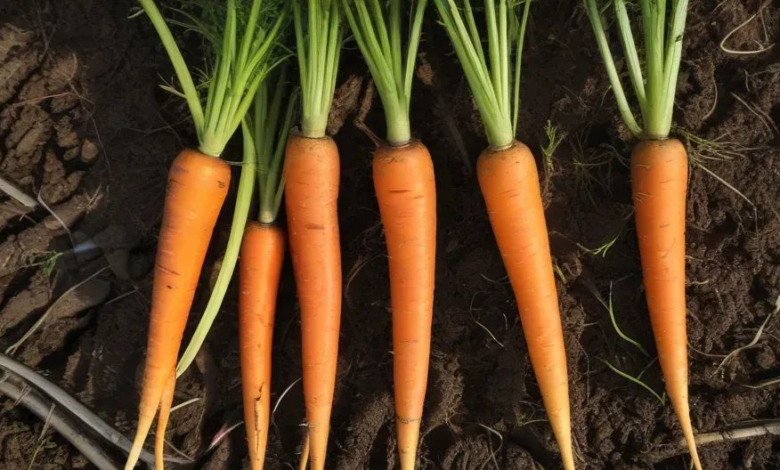
A tried-and-true method of gardening, companion planting is deliberately pairing plants to encourage more development, lessen the impact of pests, and improve the garden’s general health. If you choose your carrot companions wisely, you can increase soil structure, deter pests, and bring in beneficial insects, among other advantages. To help you grow a flourishing and harmonious garden, we’ll look at several different kinds of carrot companion plants and the advantages they provide.
Companion Plants for Carrots:
Onions
Carrot flies and aphids aren’t exactly friends with onions, therefore the two go hand in hand. Carrots are hard for pests to find since their smell is muted by the strong onion aroma. Also, the root systems of onions and carrots are similar, so they can coexist in the garden without stealing each other’s nutrients or space.
Radishes
Carrot flies and aphids aren’t exactly friends with onions, therefore the two go hand in hand. Carrots are hard for pests to find since their smell is muted by the strong onion aroma. Also, the root systems of onions and carrots are similar, so they can coexist in the garden without stealing each other’s nutrients or space.
Chives
The pest-repellent characteristics of onions and chives are similar since they are both members of the allium family. Aphids, carrot flies, and spider mites are some of the pests that chives planted next to carrots can help keep at bay. Hoverflies, predatory wasps, and other helpful insects feed on aphids and other garden pests; chives are a great way to attract them.
Peas
One of the most important minerals for carrot growth is nitrogen, which peas, being nitrogen-fixing legumes, contribute to the soil. Soil fertility and plant health are both enhanced by interplanting carrots with peas. Also, when carrot varieties grow, peas can support them by acting as a live trellis.
Lettuce
Carrot seedlings benefit from lettuce’s shade and water retention properties, which allow the soil to remain cool and damp even in hot weather. In exchange, lettuce plants benefit from carrots, which act as a natural mulch and help keep weeds at bay. If you want to grow more crops in a smaller space, interplanting lettuce and carrots is a great way to do it.
Benefits of Companion Planting for Carrots:
- Reduce the use of chemical pesticides and support a healthy garden environment by using companion plants to ward off pests that damage carrots.
- Better Soil Health: Companion plants that break up compacted soil, improve soil structure, and fix nitrogen, such as peas and radishes, help increase soil fertility.
- Making the Most of Limited Garden Space: By interplanting carrots with other appropriate plants, you can maximize the use of your garden space by growing more crops in less space.
- Carrot flowers can benefit from companion plants that entice pollinators like bees and butterflies, which increases pollination rates. This, in turn, leads to better seed set and bigger harvests.
Conclusion
Pest management, better soil health, higher pollination rates, and more efficient use of space are just a few of the many advantages that carrots can get from companion planting. Carrots thrive in an environment of peace and plenty when planted with the correct companions, each of which plays an important part in the garden ecosystem. Find out what works best for your garden by experimenting with different companion plant combinations. Then, relish in the abundant harvests that come from a balanced planting design.
FAQ’s
How do carrots benefit soil?
The deep taproot of a carrot makes it an excellent nutrient scavenger. It is important to follow the guidelines provided by soil testing while applying fertilizer.
Why are carrots good to grow?
Carrots have the advantage of being delicious as soon as you harvest them, even though they take around four months to fully grow (50 to 80 days from seed to harvest).
Are carrot peels good for soil?
After you’ve let them sit in water for at least a day, you can strain the liquid and use it to amend your garden soil. Essential plant elements such as magnesium and phosphorus are abundant in potato peels. The peels of carrots can also be used in this way.
Do carrots help kids grow?
For kids and teens, carrots are a great way to get a variety of nutrients that support healthy growth and development, including potassium, vitamin A, vitamin K, and vitamin C. The immune system, skin, and eyes all need on vitamin A to stay healthy.
Can rotten fruit be used as fertilizer?
Greenhouse gas emissions are caused by rotting fruit, which releases methane into the atmosphere. This gas is more potent than carbon pollution from cars by a factor of over 20. Composting is a prerequisite to using organic matter such as fruit and vegetable scraps as soil fertilizer; otherwise, they are toxic.
